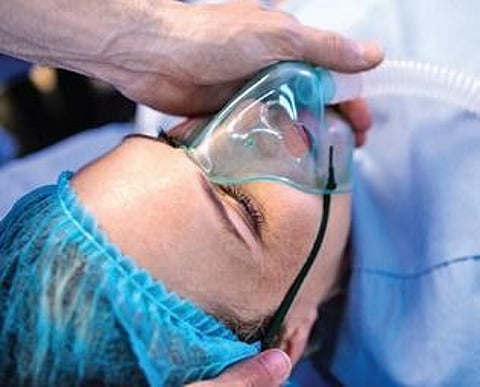

BENGALURU: Of the 592 Covid patients who died on Friday, 440 had symptoms of “breathlessness”. Experts said that this has been one of the major symptoms in the second wave. “We have been witnessing more cases of breathlessness, while in the previous wave, symptoms like dry cough, joint pain and headaches were more,” said Dr Manjunath C N, Director, Jayadeva Institute of Cardiac Sciences, and a member of the Technical Advisory Committee for Covid.
Medical experts working with the State Government said that most patients reporting breathlessness are ending up in ICUs or dying at their residences. “The deterioration can be sudden especially if there’s ‘happy hypoxia’, which is considered a silent symptom. A patient has an extremely low oxygen level, but doesn’t show any obvious external signs such as breathlessness,” said Dr S Sacchidanand, Vice-Chancellor, RGUHS.
Testing at the right time, isolating themselves in advance, not trying to treat on their own and monitoring saturation levels continuously are important, explained Dr Ravindra Mehta, senior pulmonologist, Apollo Hospitals. “Many youngsters try to ‘manage’ sore throat, fever etc with some basic medicines but the problem starts on Day 7 of the illness when the oxygen levels start to fall below 94, leading to complications or deaths,” explained Dr Mehta. Dr Manjunath said that when there is a massive involvement of lungs, the saturation level falls to a low which is also called a cytokine storm.
“Most of these patients have significant pneumonia. This shows up between Day 7 and Day 10,” he added. He warned that people in home isolation, especially mildly symptomatic and asymptomatic, should not be negligent after five or seven days. They must keep monitoring the saturation levels and also do the sixminute walk test. Patients should check the saturation level first and then walk for six minutes continuously and recheck the saturation. If it has fallen four points below the earlier saturation then he/she needs to see the doctor immediately, he explained.
“Patients in the age group of 20-40 are coming in for admission, showing they too don’t have immunity benefits due to the new variant. Involvement of lungs has been high with this variant,” said Dr Manjunath. Dr Vishal Rao, Head and Neck Oncologist and member of Covid Task Force, said, “Usually, there is shortness of breath when people have low oxygen supply. This is not happening in Covid patients. They don’t realise it unless the oxygen level becomes really low (below 90).
The mechanism is unclear.” While inflammation is a reason, clots and anxiety too are other factors for a patient to end up feeling breathless, say medical experts. People should not only monitor oxygen levels but also do tests like D Dimer, CRP, IL6 on Day 7 to know if they need intervention.
“Even after recovery, some patients may need to take blood thinners and should continue to monitor oxygen levels if they feel fatigued or breathless. Worsening of symptoms from Day 1 to Day 7 is also a flag to seek hospitalisation and medical help.” Dr Manjunath said.